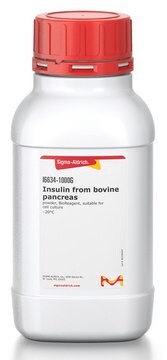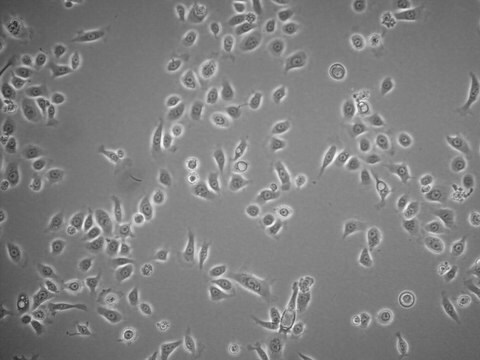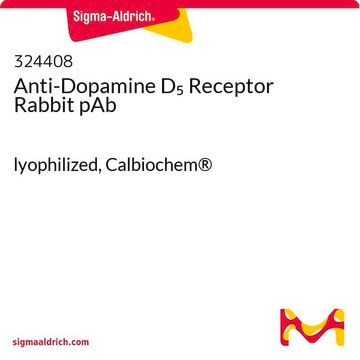ABN1378
Anti-Intersectin-1/ITSN1 Antibody
from rabbit
Sinónimos:
Intersectin-1, SH3 domain-containing protein 1A, SH3P17, Intersectin-1/ITSN1
About This Item
Productos recomendados
biological source
rabbit
Quality Level
antibody form
purified antibody
antibody product type
primary antibodies
clone
polyclonal
species reactivity
rat, human
species reactivity (predicted by homology)
mouse (based on 100% sequence homology), primate (based on 100% sequence homology), equine (based on 100% sequence homology), bovine (based on 100% sequence homology), feline (based on 100% sequence homology)
technique(s)
immunoprecipitation (IP): suitable
western blot: suitable
NCBI accession no.
UniProt accession no.
shipped in
wet ice
target post-translational modification
unmodified
Gene Information
human ... ITSN1(6453)
General description
Specificity
Immunogen
Application
Immunoprecipitation Analysis: A representative lot co-immunoprecipitated ITSN2 with ITSN1 from HEK293 cells (Novokhatska, O., et al. (2013). PLoS One. 8(7):e70546).
Immunoprecipitation Analysis: A representative lot immunoprecipitated ITSN1 in lysates prepared from growing HEK293, HeLa, MCF-7, and MDA-MB-231 cultures (Novokhatska, O., et al. (2013). PLoS One. 8(7):e70546).
Western Blotting Analysis: A representative lot detected ITSN1, but not ITSN2, by Western blotting using total HEK293 cell lysate or ITSN1 immunoprecipitate obtained from HeLa cell lysates (Novokhatska, O., et al. (2013). PLoS One. 8(7):e70546).
Quality
Western Blotting Analysis: Western Blotting Analysis: 0.5 µg/mL of this antibody detected Intersectin-1/ITSN1 in 10 µg of rat brain cytosolic preparation.
Target description
Physical form
Other Notes
¿No encuentra el producto adecuado?
Pruebe nuestro Herramienta de selección de productos.
Storage Class
12 - Non Combustible Liquids
wgk_germany
WGK 1
flash_point_f
Not applicable
flash_point_c
Not applicable
Certificados de análisis (COA)
Busque Certificados de análisis (COA) introduciendo el número de lote del producto. Los números de lote se encuentran en la etiqueta del producto después de las palabras «Lot» o «Batch»
¿Ya tiene este producto?
Encuentre la documentación para los productos que ha comprado recientemente en la Biblioteca de documentos.
Nuestro equipo de científicos tiene experiencia en todas las áreas de investigación: Ciencias de la vida, Ciencia de los materiales, Síntesis química, Cromatografía, Analítica y muchas otras.
Póngase en contacto con el Servicio técnico







